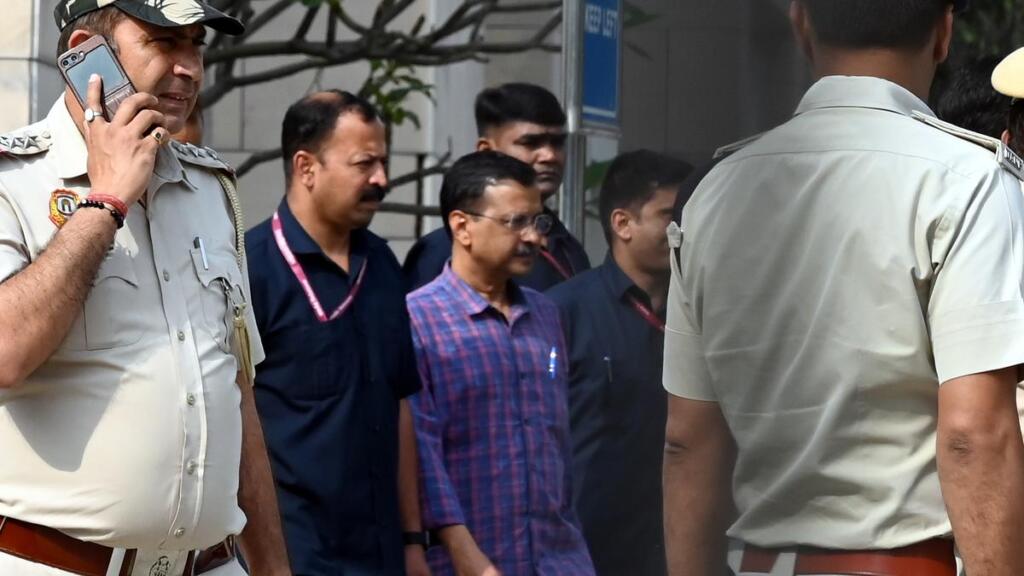The Aam Aadmi Party (AAP) leader and Delhi Chief Minister Arvind Kejriwal finds himself at the center of a complex legal storm. The Supreme Court recently permitted Kejriwal to withdraw his petition challenging the Delhi High Court’s interim stay on his bail in a money laundering case. This case, linked to the alleged liquor policy scam, has become a focal point in Delhi’s political landscape, drawing attention to the politics of Delhi
Kejriwal’s Legal Maneuvers
Kejriwal’s legal team, spearheaded by senior advocate AM Singhvi, has adopted a strategic approach. They informed the Supreme Court of their intention to file a fresh petition challenging the High Court’s final order.
The High Court’s Stance on Kejriwal’s Bail
Justice Sudhir Kumar Jain of the Delhi High Court made a significant decision by putting a hold on the trial court’s order to grant Kejriwal bail. The judge pointed out that the trial court had made its decision without thoroughly examining all the evidence presented by both sides. This development added a new layer of complexity to Kejriwal’s case, highlighting the intricate nature of legal proceedings in high-profile political cases.
However, Justice Jain was careful to clarify that his order should not be interpreted as a comment on the merits of the Enforcement Directorate’s (ED) main petition challenging the trial court order. This clarification underscores the delicate balance the judiciary must maintain in such politically charged cases.
Kejriwal’s Arrest and the ED’s Allegations
The ED’s arrest of Kejriwal on March 21 marked a turning point in this saga. The agency accused him of being the mastermind behind the Delhi Excise policy scam, a charge that Kejriwal and AAP vehemently deny. Despite a brief release to campaign for the Lok Sabha polls, Kejriwal returned to jail on June 2 after the Supreme Court denied further relief. This back-and-forth between custody and freedom has kept Kejriwal’s case in the public eye, fueling debates about the use of central agencies in political battles.
Trial Court’s Perspective on Kejriwal’s Case
Special Judge of Delhi’s Rouse Avenue Court initially granted bail to Kejriwal, providing a glimmer of hope for the AAP leader and his supporters. The judge’s decision was based on the observation that the ED had failed to produce direct evidence linking Kejriwal to the proceeds of the alleged crime.
Furthermore, the court observed that the ED appeared to be acting with bias against the Delhi CM. This observation has added fuel to AAP’s claims of political vendetta, with the party arguing that central agencies are being misused to target opposition leaders.
Supreme Court’s Approach to Kejriwal’s Plea
The Supreme Court’s handling of Kejriwal’s case has been marked by caution and deliberation. During a previous hearing, the Court acknowledged the unusual nature of a High Court reserving orders in a case affecting personal liberty. This acknowledgment highlights the sensitive nature of cases involving prominent political figures and personal freedom.
However, the Court decided to wait for the High Court’s final verdict before proceeding further. This decision reflects the Supreme Court’s respect for the judicial hierarchy and its reluctance to interfere prematurely in ongoing legal processes.
Kejriwal’s Fight for Personal Liberty
Throughout this legal battle, Kejriwal’s team has consistently emphasized the importance of personal liberty. Senior advocate Singhvi argued passionately about the unprecedented nature of staying a bail order on the first day of the hearing. This focus on personal freedom has resonated with many who see Kejriwal’s case as a test of democratic principles and the rights of opposition leaders.
The Road Ahead for Kejriwal
As the legal proceedings continue, all eyes are on the Delhi High Court’s upcoming hearing on July 10. This hearing will address the ED’s main petition challenging the trial court’s original bail order for Kejriwal. The outcome of this hearing could have significant implications not only for Kejriwal’s personal freedom but also for the political landscape of Delhi and the AAP’s future.
Implications for Delhi’s Politics
Kejriwal’s ongoing legal struggle has far-reaching implications for Delhi’s political scene. As the leader of AAP and the Chief Minister of Delhi, his absence from active governance has created a leadership vacuum that his party is struggling to fill.
Conclusion
Arvind Kejriwal’s ongoing legal battle underscores the complex interplay between politics and the judicial system in India. As the AAP leader fights to clear his name, the outcome of this case could have significant implications for Delhi’s political landscape and the broader discourse on corruption allegations in Indian politics.
ALSO READ: Dhruv Rathee berated Sadhguru for …….?
